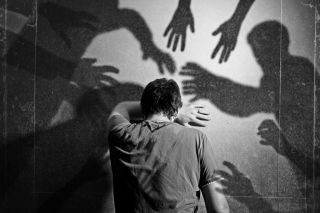Career
How to Reverse the Psychology of Othering
A focus on "superordinate" goals can help dismantle hate.
Posted May 11, 2023 Reviewed by Michelle Quirk
Key points
- Hate crimes rose nearly 12 percent between 2020 and 2021.
- While othering is a kind of ignorance, psychology shows us that it’s also deeply embedded in human motivation.
- To overcome othering and build shared belonging, we need to engage in work to realize a shared vision.

In March, the U.S. Department of Justice released new findings showing that hate crimes—including violence against people based on race, ethnicity, religion, gender, disability, and sexual orientation—rose nearly 12 percent between 2020 and 2021. As the New York Times reported, these new record-breaking statistics are still likely an underestimate.
The numbers are heartbreaking. Yet they’re also not surprising. We’re living in an age of “othering.”
In the simplest sense, othering is the process of emphasizing differences between human beings and using them as justification for boundaries and hierarchies. Taken further, othering is the temptation to see those who are not like us as “less than” and, in some cases, even less than human.
In times like these—when social media siloes enable disinformation and insensitivity, when voices in media and politics prey on division, and when people report extreme levels of social and cultural polarization—it’s clear that this tendency is on the rise.
And still, the tendency is arguably as ancient as humanity itself.
Understanding Why People Use "Othering"
To reverse the tendency toward othering, we need to understand it profoundly. While othering is a kind of ignorance, psychology shows us that it’s also deeply embedded in human motivations.
First, people use othering to make sense of the world. As the scholar Edward Said emphasized, othering takes hold because individuals are attracted to the supposed moral clarity of binary oppositions like “us” versus “them.” The psychologists Henri Tajfel and John C. Turner, in their work on social identity theory, emphasize that people often seek the straightforwardness of in-groups and out-groups to understand how they fit into the larger world. Amid complexity, we seek simplicity.
Second, people use othering as a means to enhance their own social position. The philosopher Michel Foucault emphasized that people tend to engage in these practices because they believe—consciously or not—that it enhances their own power. Through the language and norms of othering, people attempt to place themselves in the higher rungs of the social hierarchy. Tendencies toward othering are especially strong when individuals and groups are locked in competition for scarce resources.
Third—and perhaps most importantly—people are motivated to engage in othering because they see it, erroneously, as a path to find their own belonging. The great American novelist and scholar Toni Morrison once asked,
What is the nature of Othering’s comfort, its allure, its power (social, psychological, or economical)? Is it the thrill of belonging—which implies being part of something bigger than one’s solo self, and therefore stronger? My initial view leans toward the social/psychological need for a stranger, an Other in order to define the estranged self.
Under conditions of disconnection and perceived scarcity, we are, as Morrison points out, often estranged from ourselves—cut off from meaning and resilience. This kind of estrangement is uncomfortable. So, we’ll often go to extreme lengths to fill the void.
Morrison spoke of how othering could manifest as the impulse “to own, govern, and administrate,” which, in turn, could fuel the flames of colonialism, and enable slavery, genocide, apartheid, political demagoguery, wage discrimination, and militarized policing. These are the most visible consequences of othering.
But in contrast to this desire to “own, govern, and administrate,” we also see “othering” manifest as what appears to be passive, systemic indifference. This includes subtle cues of not belonging, like microaggressions of language and refusals to listen. It includes policies that don’t purport to be discriminatory but, in reality, result in the perpetuation of multigenerational inequities.
In researching my new book, On Belonging: Finding Connection in an Age of Isolation, the power of Morrison’s explanation became clearer to me. Othering isn’t just a false path to belonging. We might also see it as the shadow side of belonging.
In writing the book, I interviewed Rex Molefe, a former child soldier now living in South Africa, who explained to me that he felt a genuine sense of belonging as an early teen in war. “The mayhem and social ills that we are confronted with today in the world,” he said, “actually stem from that lack of sense of belonging.” Afghan researcher Weeda Mehran—who was secretly homeschooled with her mom in Taliban-controlled Afghanistan and now studies propaganda in militant groups—explains that people often join these groups because of a desire to be part of a unified group, defined by opposition to a “wicked” outside group.
Extremist movements today—the kinds of cultural tropes that drive violence and hate—rely on the same underlying dynamic of othering. Think of demagogues warning people that their livelihoods are being stolen by undeserving immigrants. Around the world, people are being led to believe that they’re locked in zero-sum competition for jobs with an unknown "other" for scarce opportunities. Authoritarian politics is all about convincing people that they’re competing with some “alien” group to attain what they want.
In my first post in this series, I introduced you to Albert Marshall—an Elder from the Moose Clan of the Mi’kmaq Nation in Canada—who explained that the key to the success of any human civilization is rich connectedness. He described a healthy society like the interconnected roots of a tree—in the sense of our reciprocity of connection to other people. When we engage in othering, we’re not just degrading people who aren’t like us. We’re attempting to place ourselves above this pattern of belonging, this reciprocal web of life—forgetting that we’re a part of it.
A Social Construction That Can Be Dismantled
While othering is an ancient tendency, that doesn’t mean that it’s humanity’s natural state of being. It’s not inherent to who we are. It’s a social construction that can be dismantled. Morrison’s idea of othering as a strategy for defining “the estranged self” contains a key to doing this work. This is to say, to truly address othering, we need to address the underlying estrangement. We have to cultivate belonging.
In 1954, the social psychologist Muzafer Sherif ran an experiment, bringing 22 early teenage boys to a summer camp and dividing them into two groups who had no contact with each other besides competitions for prizes. The two groups became highly distrustful, even hateful, of each other.
Yet the boys were able to overcome their othering when they were forced to work together to achieve common goals. The researchers, for example, cut off the camp’s water supply and required the teams to work together to solve the problem. Later, the truck that delivered the campers’ food wouldn’t start, so they had to work together to pull it out with a rope. After these events, the antagonism declined dramatically.
Sherif identified a key to overcoming othering: focus on “superordinate goals”—that’s to say, objectives that people, across differences, care about and that they have to work together to achieve. To overcome othering and build shared belonging, we need to engage in work to realize a shared vision. When we have purpose—especially shared purpose—we’re less subject to the feelings of “estrangement” that Toni Morrison described.
There’s hope for our future in this insight. Addressing the urgent and existential challenge of environmental destruction, for example, requires that we put aside our differences in the name of our shared survival. Figuring out how we’re going to ensure decent livelihoods amidst the sea change of artificial intelligence requires all of us to come together in search of solutions.
In individual societies, we often see this dynamic in times of war or tragedy: People put aside grievances when there’s a shared purpose that requires common commitment. Think of how people came together to support first responders and provide mutual aid in the early days of the pandemic. Of course—as the pandemic demonstrates—it can be challenging to maintain this sense of shared purpose over time.
The question today, in a global age of isolation and division, is whether we—as humanity—can find and focus on our “superordinate goals,” like environmental preservation, the restoration of civility in the public discourse, or structuring a fair economy amidst technological upheaval. The question is, will we recognize that we genuinely need each other?
In an age of rising hate crimes, historic inequality, political polarization, and rampant bullying and dehumanization, it’s hard to see a way to transform the tendency of othering. While political, technological, and cultural remedies are important, we have to look more deeply at what it will take to transform some of the most fundamental human motivations. We need to cultivate belonging in order to transform the psychology of othering.
Facebook image: LeonWang/Shutterstock
LinkedIn image: Johnny Silvercloud/Shutterstock




